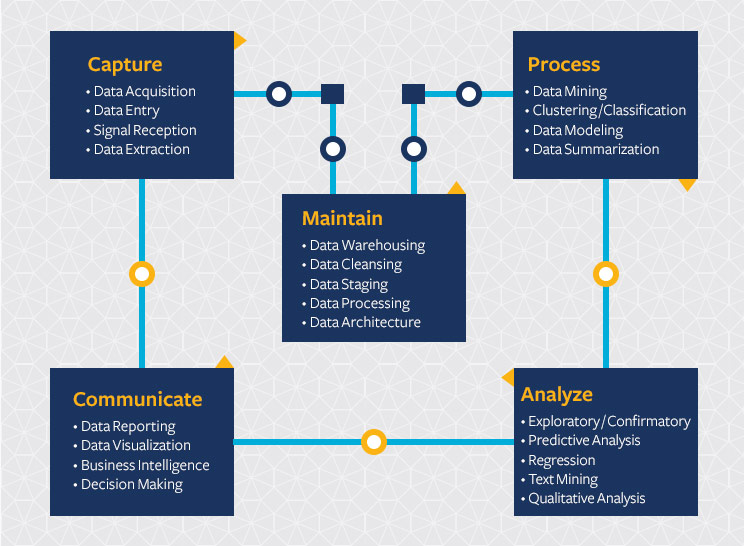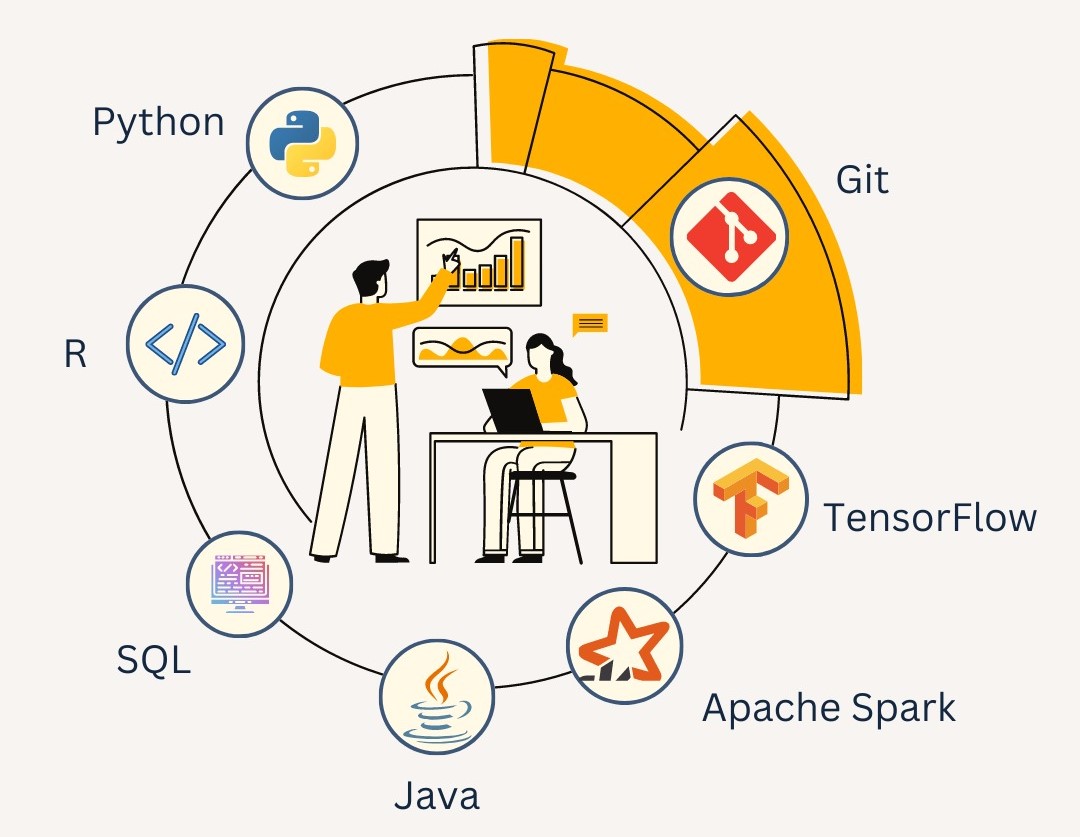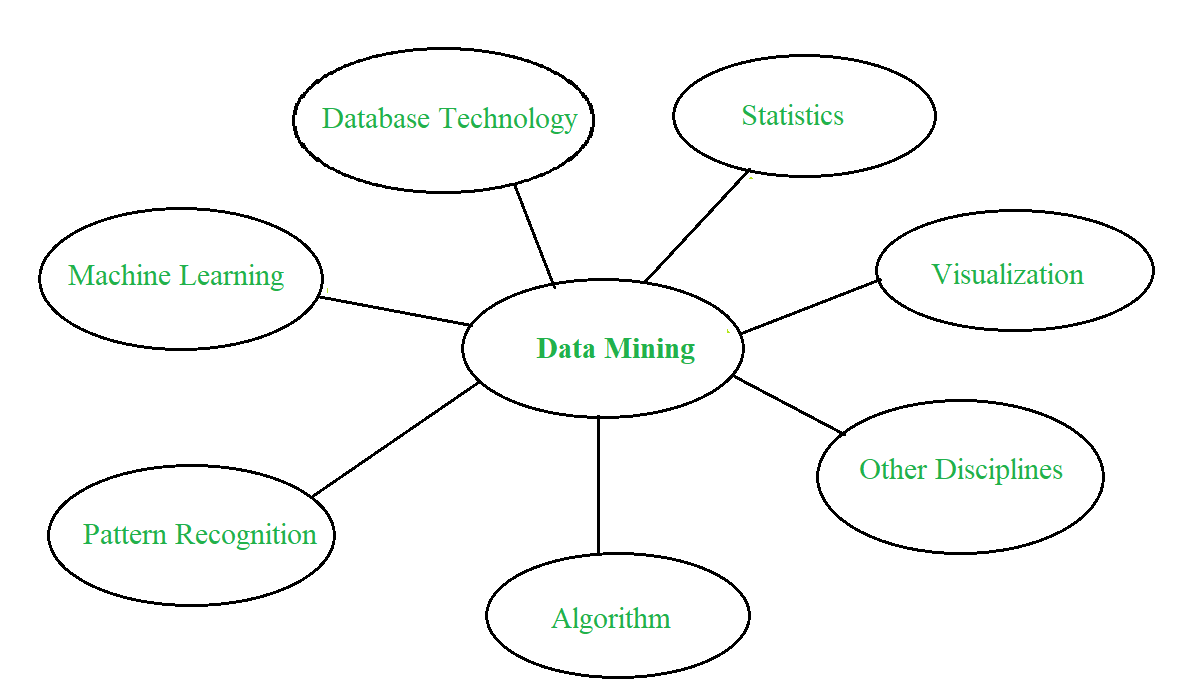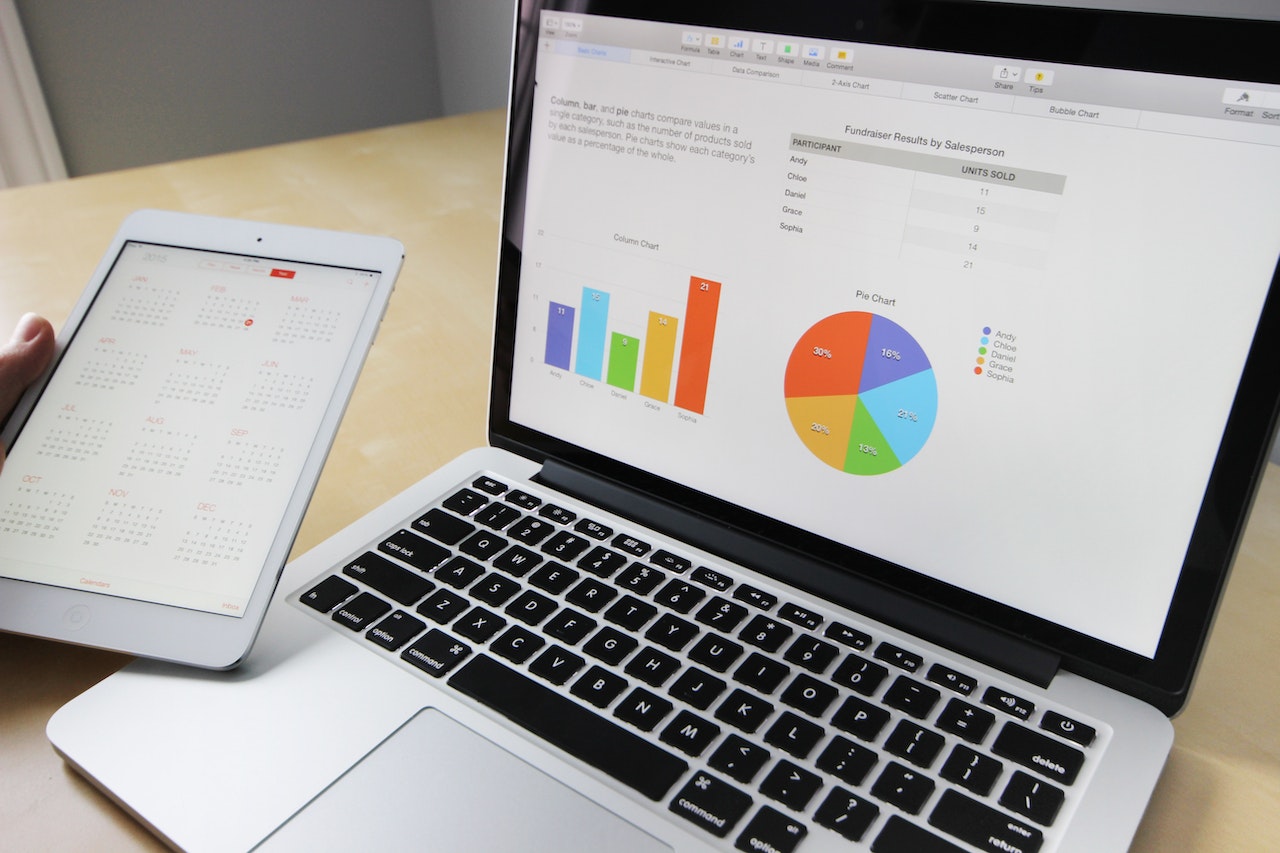Introduction to Data Science
Feb 27, 2023
Introduction
Do you know Why is everyone talking about Data science ? More data has been created in the past two years than in the entire history of humankind.By 2020, about 1.7 megabytes of new information will be created every second for every human being in the world. By 2020, the data we create and copy will reach around 35 zettabytes,up from only 7.9 zettabytes today.Note the jump from 2015 to 2020 of 343%.It is also predicted that the amount of data produced will increasingly outpace available storage.
Why Data science?
1. Human-generated structured data mainly includes all the data a human input into a computer, such as his name and other personal details.
2. When a person clicks a link on the internet, or even makes a move in a game, data is created- this can be used by companies to figure out their customer behaviour and make the appropriate decisions and modifications.
You can checkout the life-cycle of data science above.
Where Do You Fit in Data Science?
Data is everywhere and expansive. A variety of terms related to mining, cleaning, analyzing, and interpreting data are often used interchangeably, but they can actually involve different skill sets and complexity of data.
Data Scientist
Data scientists examine which questions need answering and where to find the related data. They have business acumen and analytical skills as well as the ability to mine, clean, and present data. Businesses use data scientists to source, manage, and analyze large amounts of unstructured data. Results are then synthesized and communicated to key stakeholders to drive strategic decision-making in the organization.
Skills required : Programming skills (SAS, R, Python), statistical and mathematical skills, storytelling and data visualization, Hadoop, SQL, machine learning
Data Analyst
Data analysts bridge the gap between data scientists and business analysts. They are provided with the questions that need answering from an organization and then organize and analyze data to find results that align with high-level business strategy.
Data analysts are responsible for translating technical analysis to qualitative action items and effectively communicating their findings to diverse stakeholders
Skills required : Programming skills (SAS, R, Python), statistical and mathematical skills, data wrangling, data visualization
Data Engineer
Data engineers manage exponential amounts of rapidly changing data. They focus on the development, deployment, management, and optimization of data pipelines and infrastructure to transform and transfer data to data scientists for querying.
Skills required : Programming languages (Java, Scala), NoSQL databases (MongoDB, Cassandra DB), frameworks (Apache Hadoop)
Data Science Career Outlook and Salary Opportunities
Data science professionals are rewarded for their highly technical skill set with competitive salaries and great job opportunities at big and small companies in most industries. With almost 6,000 open positions listed on Glassdoor, data science professionals with the appropriate experience and education have the opportunity to make their mark in some of the most forward-thinking companies in the world.
Below are the average base salaries for the following positions :
Data analyst : $69,517
Data scientist : $117,212
Senior data scientist : $142,258
Data engineer : $112,493
Gaining specialized skills within the data science field can distinguish data scientists even further. For example, machine learning experts utilize high-level programming skills to create algorithms that continuously gather data and automatically adjust their function to be more effective.
Career oppurtunities from Data Science :
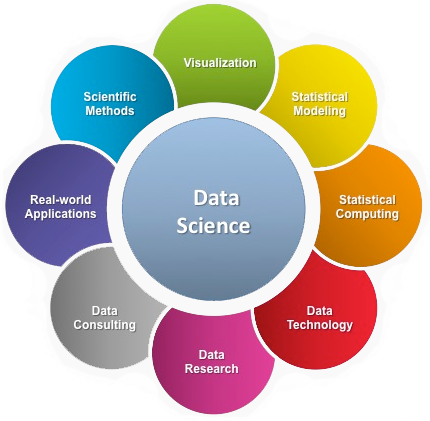
Applications of DS :
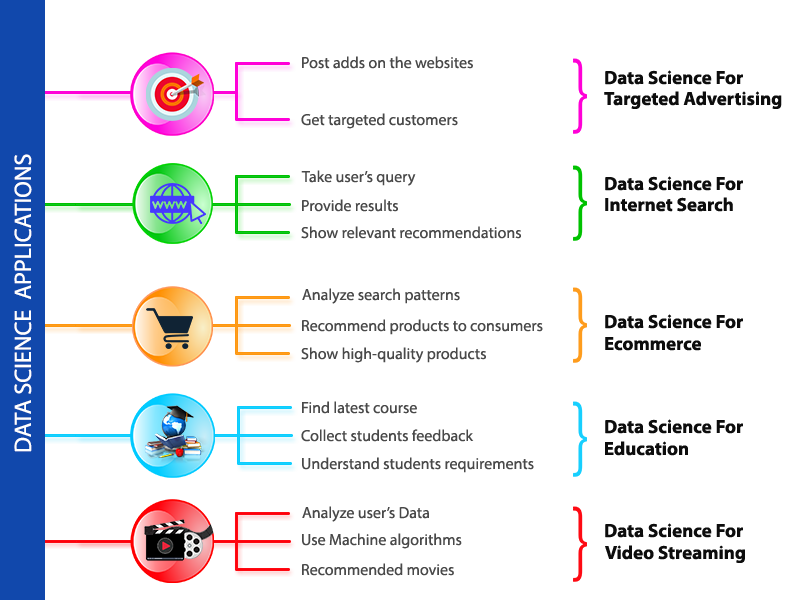
Advantages of Data Science :
In today’s world, data is being generated at an alarming rate. Every second, lots of data is generated; be it from the users of Facebook or any other social networking site, or from the calls that one makes, or the data which is being generated from different organizations. And because of this huge amount of data the value of the field of Data Science has a number of advantages. Some of the advantages are mentioned below :
Multiple Job Options : Being in demand, it has given rise to a large number of career opportunities in its various fields. Some of them are Data Scientist, Data Analyst, Research Analyst, Business Analyst, Analytics Manager, Big Data Engineer, etc.
Business benefits : Data Science helps organizations knowing how and when their products sell best and that’s why the products are delivered always to the right place and right time. Faster and better decisions are taken by the organization to improve efficiency and earn higher profits.
Highly Paid jobs & career opportunities : As Data Scientist continues being the sexiest job and the salaries for this position are also grand. According to a Dice Salary Survey, the annual average salary of a Data Scientist $106,000 per year.
Hiring benefits : It has made it comparatively easier to sort data and look for best of candidates for an organization. Big Data and data mining have made processing and selection of CVs, aptitude tests and games easier for the recruitment teams.
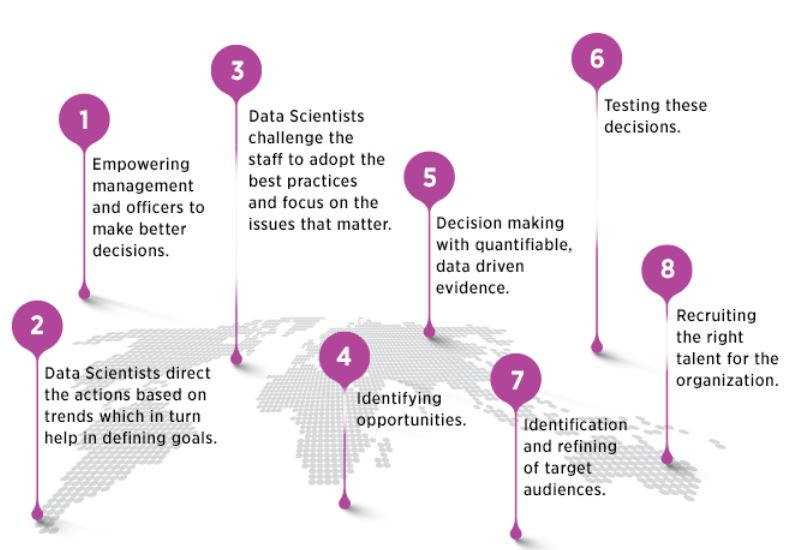
Disadvantages of Data Science :
Everything that comes with a number of benefits also has some consequences . So let’s have a look at some of the disadvantages of Data Science :
Data Privacy : Data is the core component that can increase the productivity and the revenue of industry by making game-changing business decisions. But the information or the insights obtained from the data can be misused against any organization or a group of people or any committee etc. Extracted information from the structured as well as unstructured data for further use can also misused against a group of people of a country or some committee.
Cost : The tools used for data science and analytics can cost a lot to an organization as some of the tools are complex and require the people to undergo a training in order to use them. Also, it is very difficult to select the right tools according to the circumstances because their selection is based on the proper knowledge of the tools as well as their accuracy in analyzing the data and extracting information.
Interview Questions :
1. what is data science?
2. Name the real life applications where we are using data science?
3. What is the difference between hadoop and spark?
4. How do you become a data scientist?
5. Which technologies you have to learn to become a data analyst?
Relative Blogs
Feb 28, 2023
March 3, 2023
Feb 27, 2023
